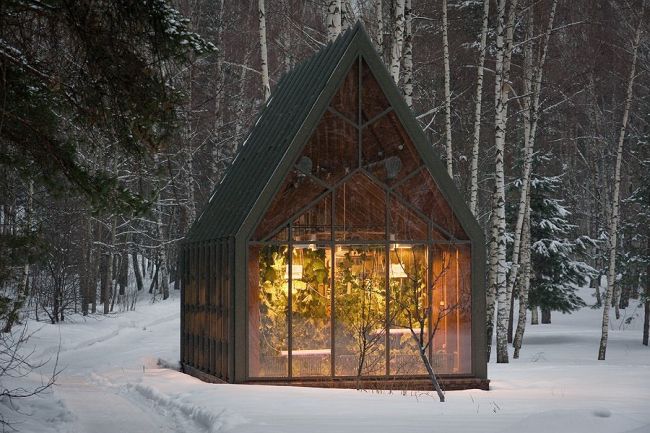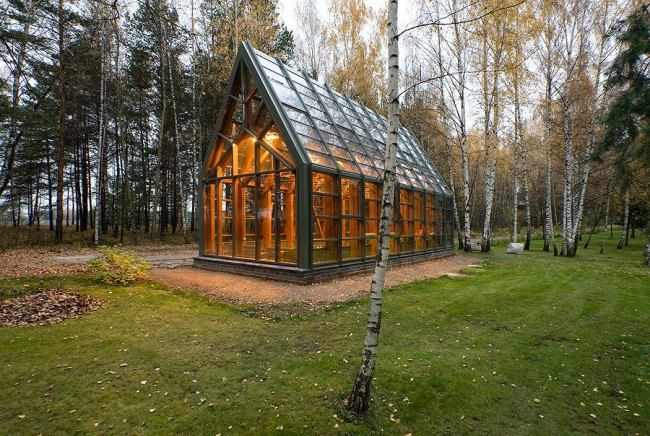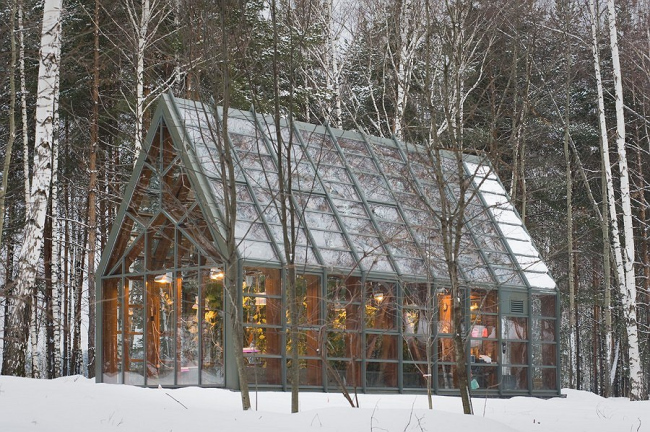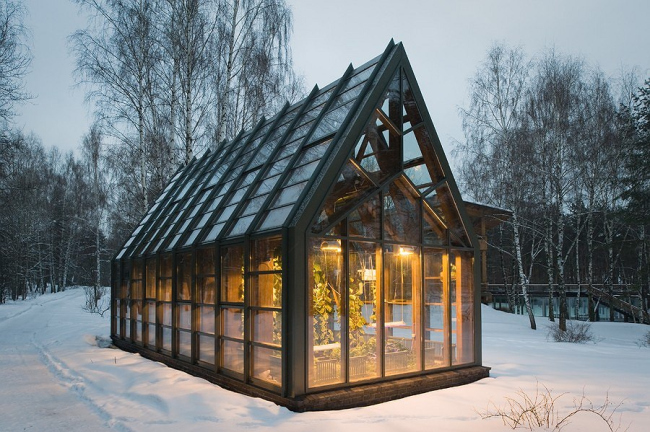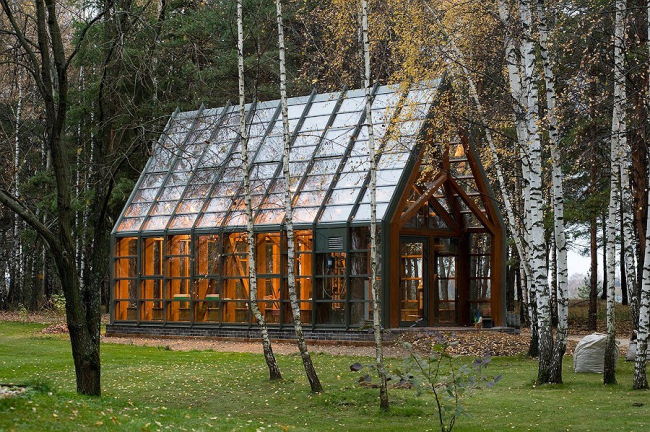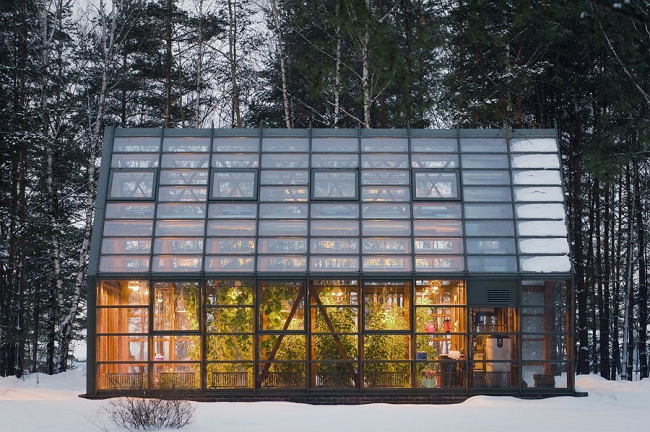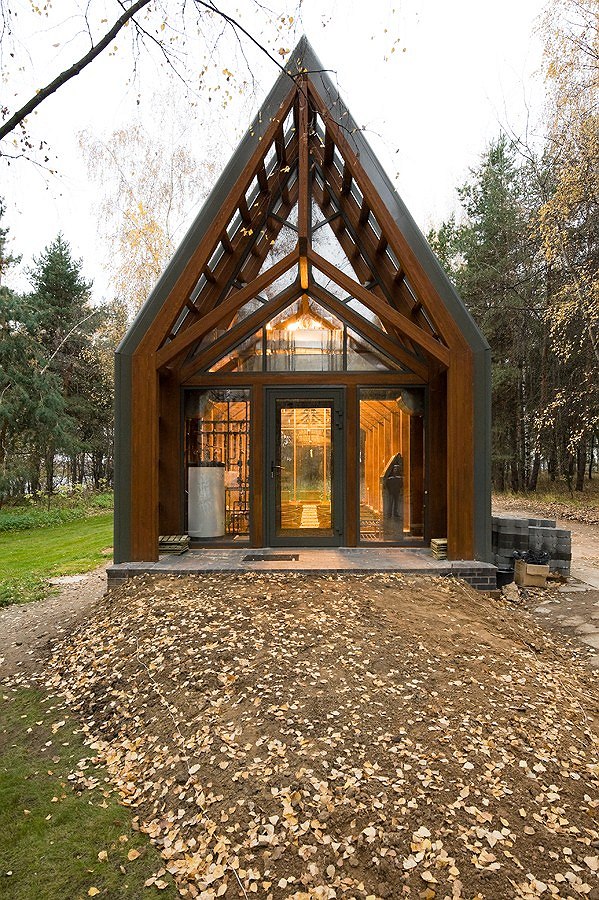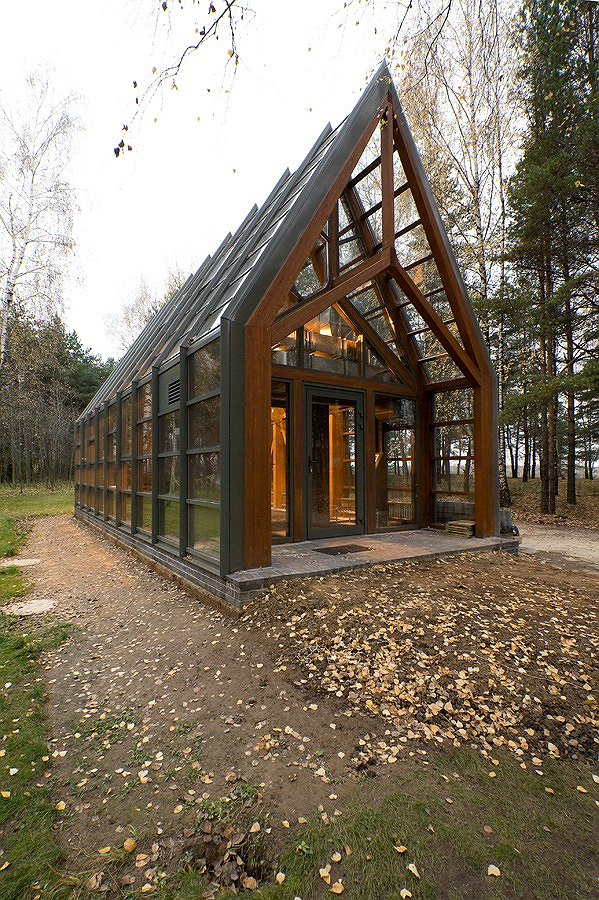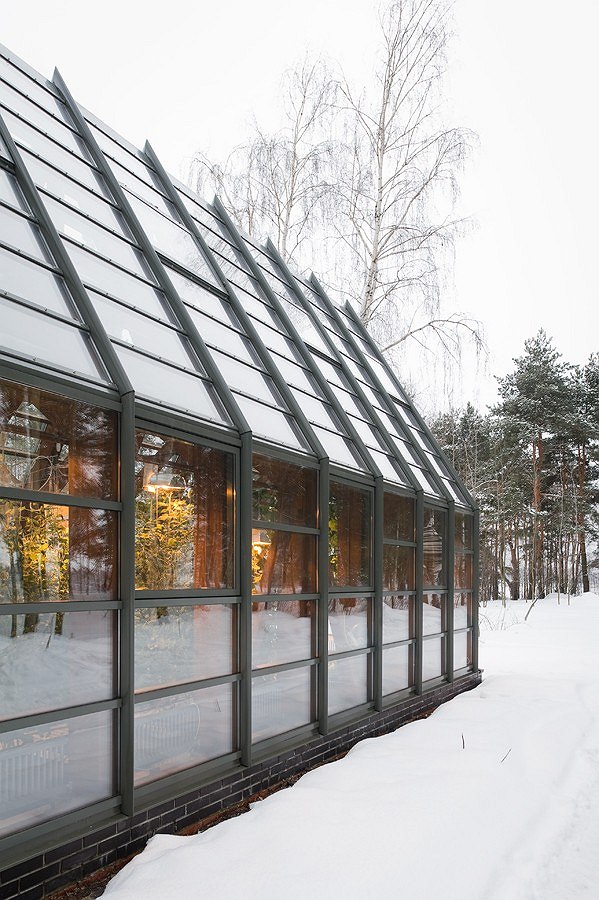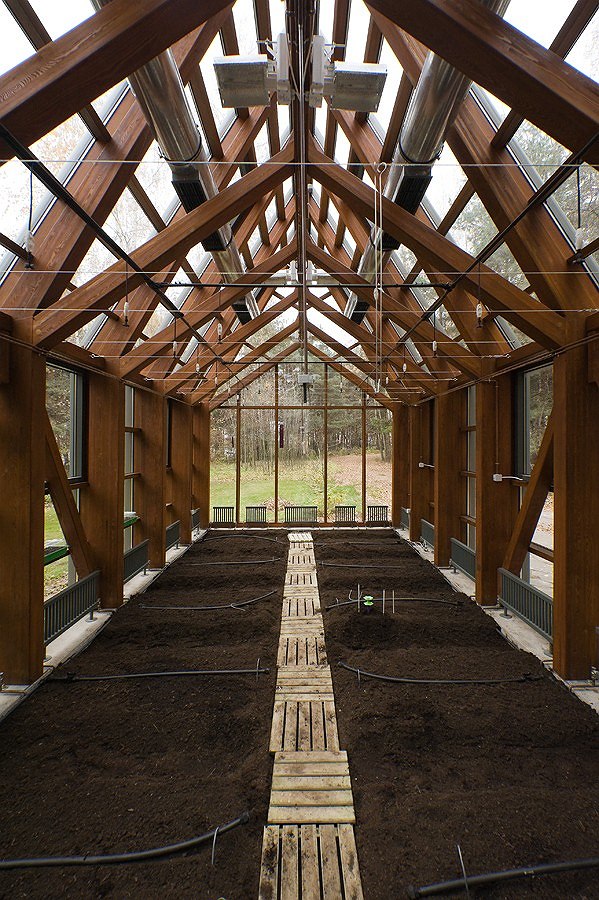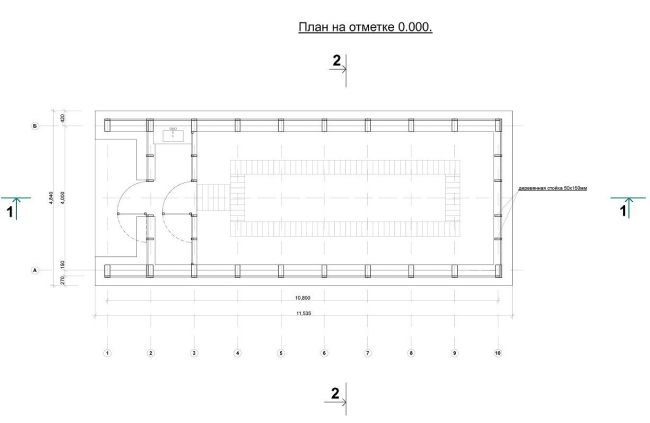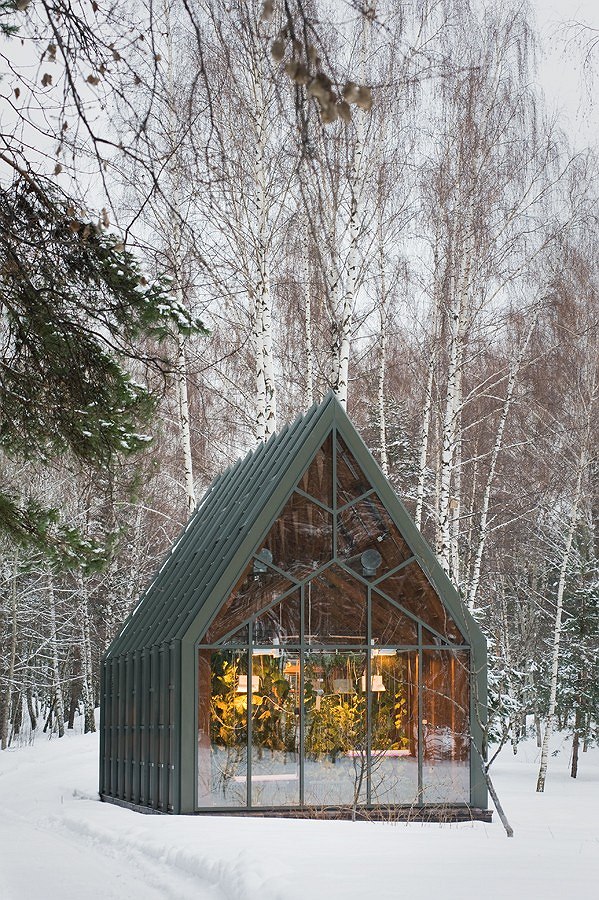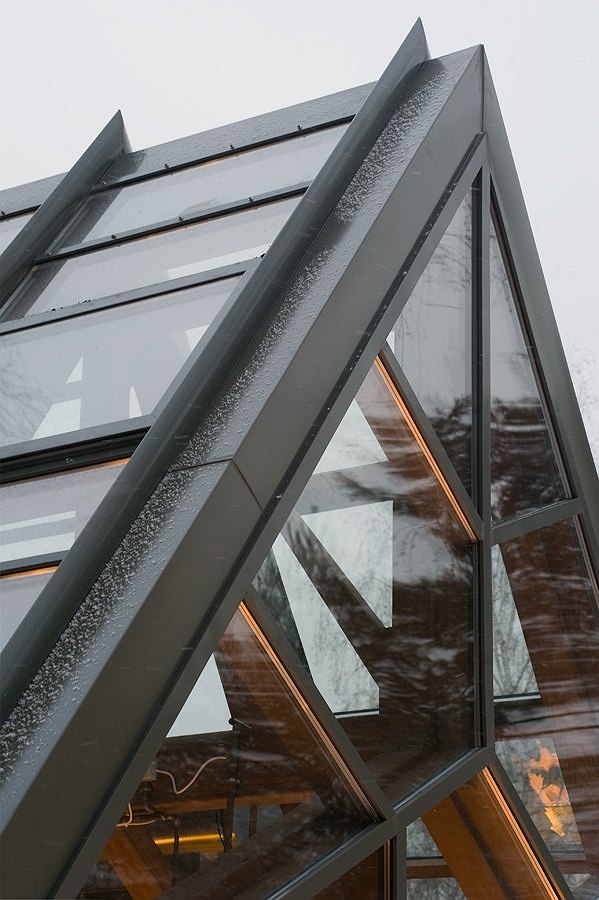|
Among the numerous buildings of "Pirogovo" resort, there is one that stands out even against the diverse background of the most high-profile objects of this museum of contemporary architecture. This the “Greenhouse” designed by Totan Kuzembaev - a simple and laconic volume of wood and glass.
Greenhouse,
in this particular case, is not a beautiful-sounding name but the actual
function of this building. After Totan Kuzembaev designed for Alexander Ezhkov,
the owner of "Pirogovo" resort, a house, a yacht club, guest houses,
and a restaurant, Alexander Ezhkov ordered the architect to design a greenhouse
in order to grow ecologically pure greens and vegetables in it. The very term
"greenhouse" became a direct operations directive for the architect -
Kuzembaev makes the traditional image of a makeshift garden affair take on a
new meaning thanks to the elegant-looking wooden structures.
The greenhouse consists of the main growing area, the tambour that has in it
the meters of the engineering systems, and a porch, being in effect a
glass-faced volume with a pitched roof. The transparent casing is
"stretched" over the parallel strand lumber framework that consists
of openwork bearing frames, the connecting braces, and the enlarged girder.
Kuzembaev stays true to himself: all of his constructional units are deigned
with hidden fastening elements, some sections of the girder being actually part
of the bearing framework, thanks to which the wooden skeleton of the building
looks a lot like an intricate jigsaw puzzle.
The walls and the roof of the greenhouse are assembled of RAICO stained glass
system that allows combining several various materials of the bearing framework
within one facade fragment. In this particular case, the architect achieves a
perfect marriage between the wood and the aluminum by letting out the metallic
structures that are painted dark gray. And, while on the side walls of the
greenhouse the joints are almost invisible, the pitches of the roof and the
facades are ostentatiously "dissected" with the verticals of the
aluminum ribs that add extra intrigue to the laconic volume.
The inner framework of the building, as was already said, is made solely of
wood. Thanks to this, an interesting visual effect is created: the graphite
strokes of the outside structures look as if they were backlit by the honey
shade of the wooden beams echoing them from the inside. This effect is
increased manifold at night when the building turns on the special phytolamps -
fastened on the bottom belt of the framework, they are seen especially well
through the side walls of the greenhouse, highlighting the double structure of
the volume where the smaller house is "inscribed" into the larger
transparent one. None
None
None
None
None
None
None
None
None
None
None
None
None
|
